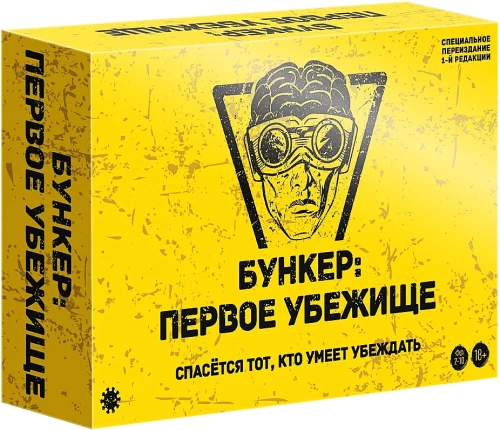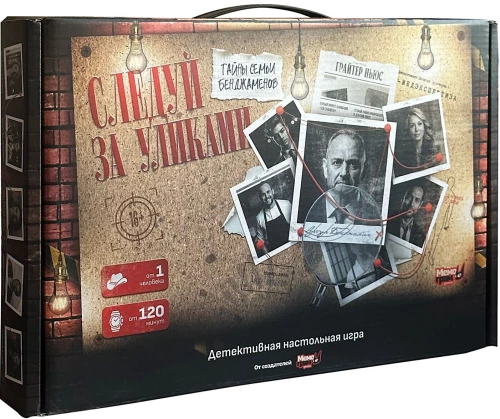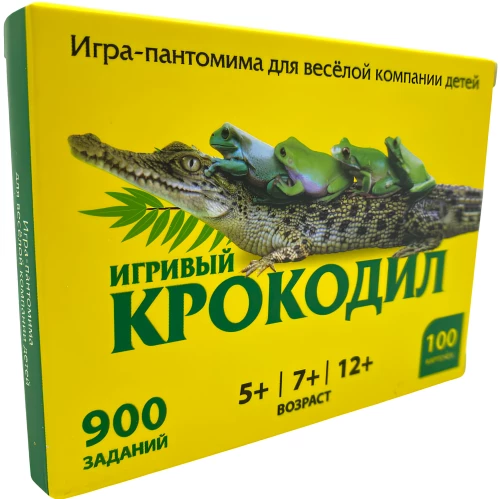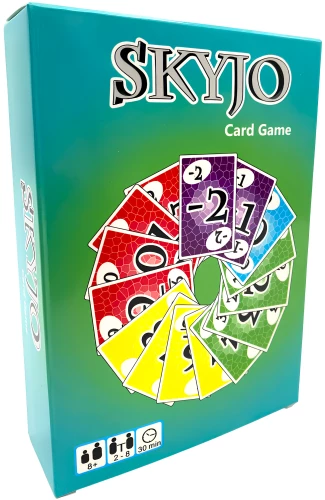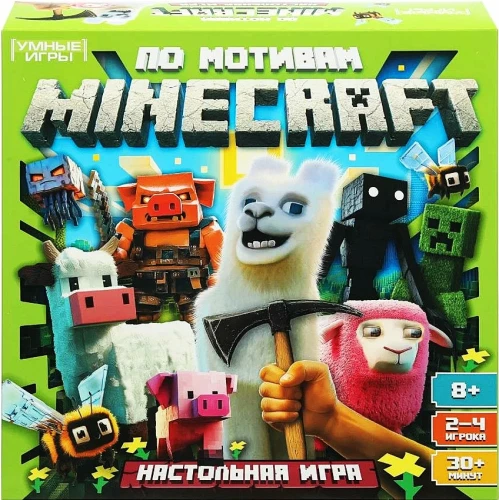Table Game Fish
What haven’t we done in board games: we’ve fought monsters, conquered space, and even brewed invigorating Coffee, but we certainly haven’t canned sardines with mackerel yet!Fish is perhaps the most concise and quick, yet also critical and brain-bending euro-strategy, striking...
with its complexity in decision-making. Such a multifaceted blend of meticulous planning, clever engine building, and uncompromising auction is just not what you expect to see in such a small box — and that is impressive!
Fish: a bit more about the gameFish does a worthy job of continuing the series of games 5 QUINAS from the Portuguese publisher Pythagoras. The series began with the game Coffee — a charming and brain-bending abstract about growing grains of the noble drink and selling it in the best coffee shops of the country. Fish unmistakably resembles its "brother", but at the same time significantly differs from it — it’s like looking at two completely different paintings and yet confidently declaring that they were painted by the same hand. It features the same creative design, continues to follow the principle of “big game in a small box” and once again opens a new chapter in the history and culture of Portugal.In this game, you become the manager of your own canning factory in the first half of the 20th century. Your goal is to produce and sell as many canned sardines and mackerel as possible. You have only six rounds to build the most efficient production chain and become a true canning magnate. And how this will happen — we will now explain.
Fewer actions - more choices
Each round begins with an auction — it determines the order in which you will perform your actions in this part of the game. You spend points from your action pool to bid, of which there are very few — only nine per round. Of course, you can keep all nine actions for yourself, but then you will likely end up going last and "settling" for the less notable leftovers. This might severely hurt the development of your strategy, as opponents will leave you with almost no choices and useful cards.On the other hand, you can invest in the auction and go first, taking all the cream. But then, for the round, you might have only three to four actions left, which ultimately won’t be enough for anything. Was that priority worth it? The game puts you in such a difficult choice every round. Maintaining the right balance between turn order and the number of actions is the first key to success in this game!
Building your factory
In this phase, players take turns drafting product cards from the market and adding them to the production line of their factory. The longer you decide to build your chain, the more money it will require. And here, every coin counts — you will think twice about whether it’s worth expanding so much.Wise placement of cards in the production line is the second key to the success of your canning business. All cards will activate in strict order from left to right, so their sequence in the chain plays a decisive role. That’s why it’s very important to plan your actions a few moves ahead, considering what and in what quantity you want to produce and sell in that round.Moreover, you cannot avoid playing the cards you’ve drafted into your production line. Sometimes you may even have to lay them on top of other cards, which could break your perfect chain that you’ve worked so hard on in previous rounds. Yes, the life of an entrepreneur is not fair.
Production and sales
In this phase, you produce the finished products: canned sardines, sardines in tomato, and mackerel in olive oil. To do this, you sequentially activate the product cards in your production line, spending an action point for each card. Remember, you recklessly bid in the first phase, aiming to become the first player? This is where the consequences of your actions will catch up with you...During production, it’s vital to evaluate which markets are available in this round and what types of canned goods are required for them. You might think that the more you produce everything, the better. But that’s not always possible or appropriate, as you are constantly limited by action points, some of which you’ve spent in the auction. And all remaining points need to be wisely distributed between production and sales. If you don’t have enough action points to sell the just-produced canned goods, they will simply spoil — and then you’ll lose your money!Choosing goals
In this phase, you can buy one of the available goal cards — this is your only source of victory points in the game. And again, it all comes down to money, which is so hard to earn. You would like to spend it on expanding production, but if you miss a chance to buy a goal card just once — you have already lost one of six chances to earn victory points. Such wastefulness can cost you dearly at the end of the game when those missed points might be what you needed for victory!In the end, we get a very critical strategy for building an efficient production engine with simple rules and a game duration of around forty minutes. A true gem of Portuguese game design!At the same time, the game looks very stylish and will surely please board game aesthetics enthusiasts with its design and quality of components. It features pop art of old advertising posters, light primitivism, playful sketching lines, and lettering in the style of early 20th-century store sign painting. All colors are muted and understated, and all gray elements are printed according to the Pantone color model — literally shining, reminding simultaneously of fish scales, canned goods, and the enticing silver of escudo — the Portuguese currency that was later replaced by the euro.
Number of players: 1–4.
Game duration: 30 to 60 minutes.
Fish: a bit more about the gameFish does a worthy job of continuing the series of games 5 QUINAS from the Portuguese publisher Pythagoras. The series began with the game Coffee — a charming and brain-bending abstract about growing grains of the noble drink and selling it in the best coffee shops of the country. Fish unmistakably resembles its "brother", but at the same time significantly differs from it — it’s like looking at two completely different paintings and yet confidently declaring that they were painted by the same hand. It features the same creative design, continues to follow the principle of “big game in a small box” and once again opens a new chapter in the history and culture of Portugal.In this game, you become the manager of your own canning factory in the first half of the 20th century. Your goal is to produce and sell as many canned sardines and mackerel as possible. You have only six rounds to build the most efficient production chain and become a true canning magnate. And how this will happen — we will now explain.
Fewer actions - more choices
Each round begins with an auction — it determines the order in which you will perform your actions in this part of the game. You spend points from your action pool to bid, of which there are very few — only nine per round. Of course, you can keep all nine actions for yourself, but then you will likely end up going last and "settling" for the less notable leftovers. This might severely hurt the development of your strategy, as opponents will leave you with almost no choices and useful cards.On the other hand, you can invest in the auction and go first, taking all the cream. But then, for the round, you might have only three to four actions left, which ultimately won’t be enough for anything. Was that priority worth it? The game puts you in such a difficult choice every round. Maintaining the right balance between turn order and the number of actions is the first key to success in this game!
Building your factory
In this phase, players take turns drafting product cards from the market and adding them to the production line of their factory. The longer you decide to build your chain, the more money it will require. And here, every coin counts — you will think twice about whether it’s worth expanding so much.Wise placement of cards in the production line is the second key to the success of your canning business. All cards will activate in strict order from left to right, so their sequence in the chain plays a decisive role. That’s why it’s very important to plan your actions a few moves ahead, considering what and in what quantity you want to produce and sell in that round.Moreover, you cannot avoid playing the cards you’ve drafted into your production line. Sometimes you may even have to lay them on top of other cards, which could break your perfect chain that you’ve worked so hard on in previous rounds. Yes, the life of an entrepreneur is not fair.
Production and sales
In this phase, you produce the finished products: canned sardines, sardines in tomato, and mackerel in olive oil. To do this, you sequentially activate the product cards in your production line, spending an action point for each card. Remember, you recklessly bid in the first phase, aiming to become the first player? This is where the consequences of your actions will catch up with you...During production, it’s vital to evaluate which markets are available in this round and what types of canned goods are required for them. You might think that the more you produce everything, the better. But that’s not always possible or appropriate, as you are constantly limited by action points, some of which you’ve spent in the auction. And all remaining points need to be wisely distributed between production and sales. If you don’t have enough action points to sell the just-produced canned goods, they will simply spoil — and then you’ll lose your money!Choosing goals
In this phase, you can buy one of the available goal cards — this is your only source of victory points in the game. And again, it all comes down to money, which is so hard to earn. You would like to spend it on expanding production, but if you miss a chance to buy a goal card just once — you have already lost one of six chances to earn victory points. Such wastefulness can cost you dearly at the end of the game when those missed points might be what you needed for victory!In the end, we get a very critical strategy for building an efficient production engine with simple rules and a game duration of around forty minutes. A true gem of Portuguese game design!At the same time, the game looks very stylish and will surely please board game aesthetics enthusiasts with its design and quality of components. It features pop art of old advertising posters, light primitivism, playful sketching lines, and lettering in the style of early 20th-century store sign painting. All colors are muted and understated, and all gray elements are printed according to the Pantone color model — literally shining, reminding simultaneously of fish scales, canned goods, and the enticing silver of escudo — the Portuguese currency that was later replaced by the euro.
Number of players: 1–4.
Game duration: 30 to 60 minutes.
Printhouse: GaGa Games
Brand: GAGA GAMES
Series: GG450
Age restrictions: 10+
ISBN: 4620102362286
ID: 1666650
In stock
€ 33.99
Will be delivered to United States on 12 March (Th):
By courier
from € 38.94
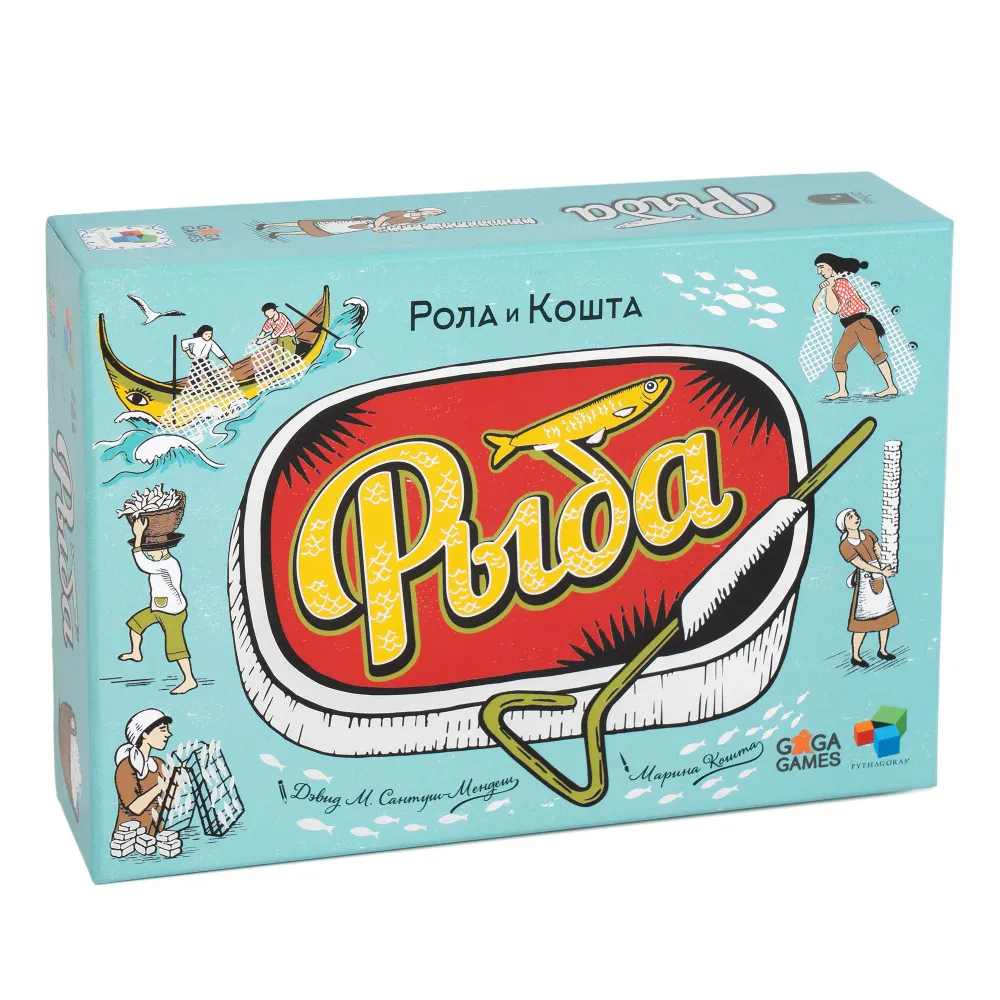
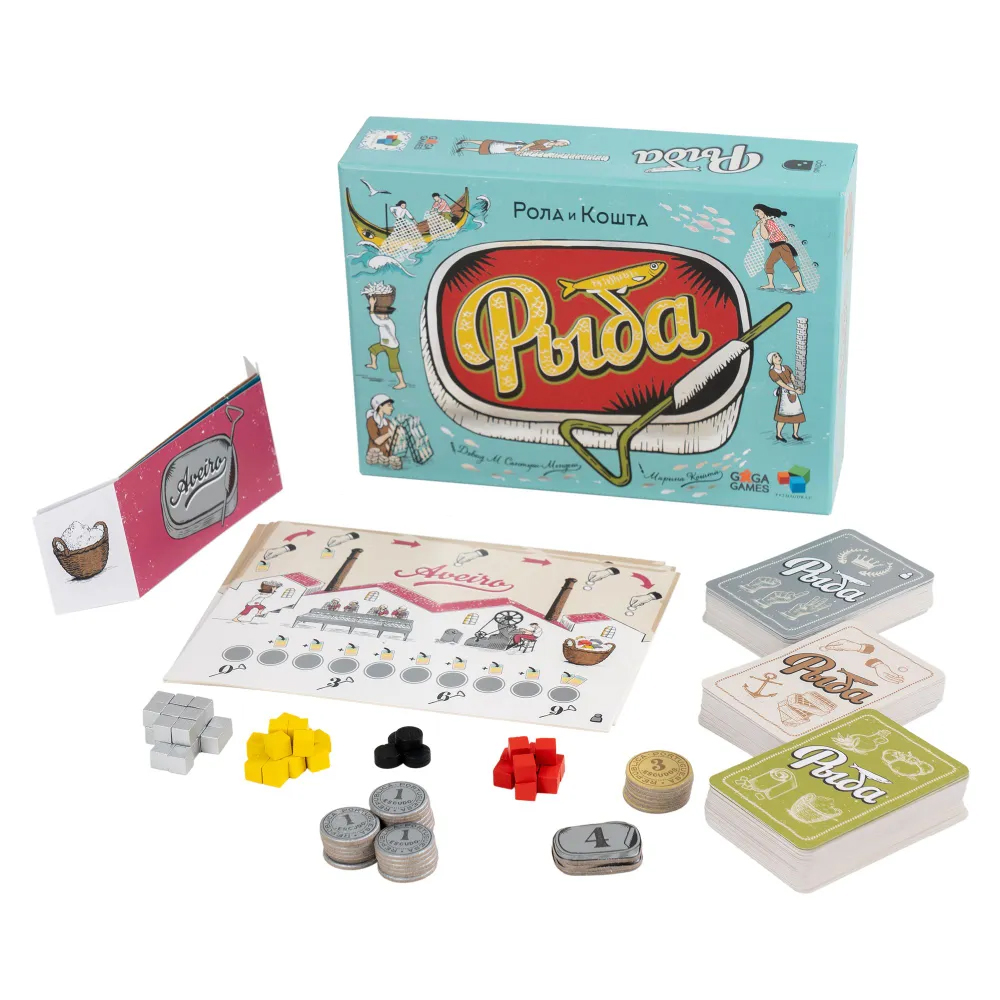
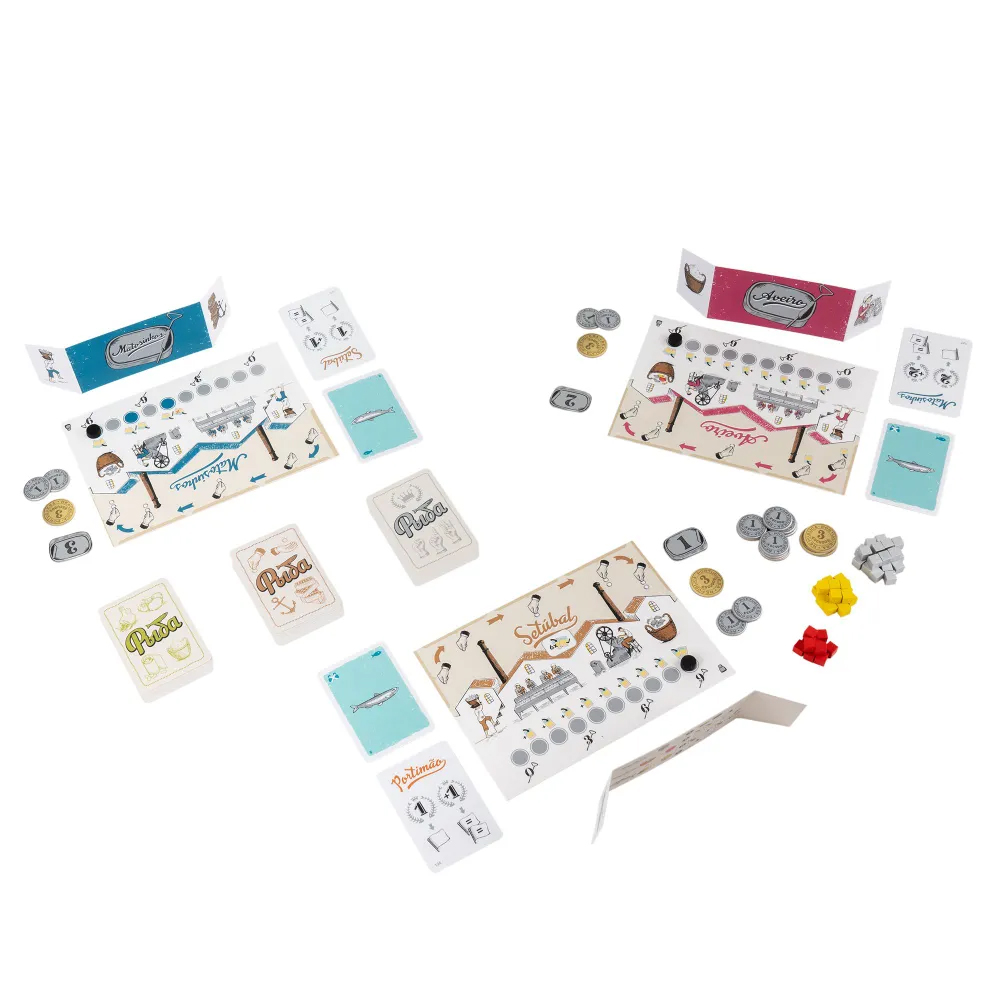
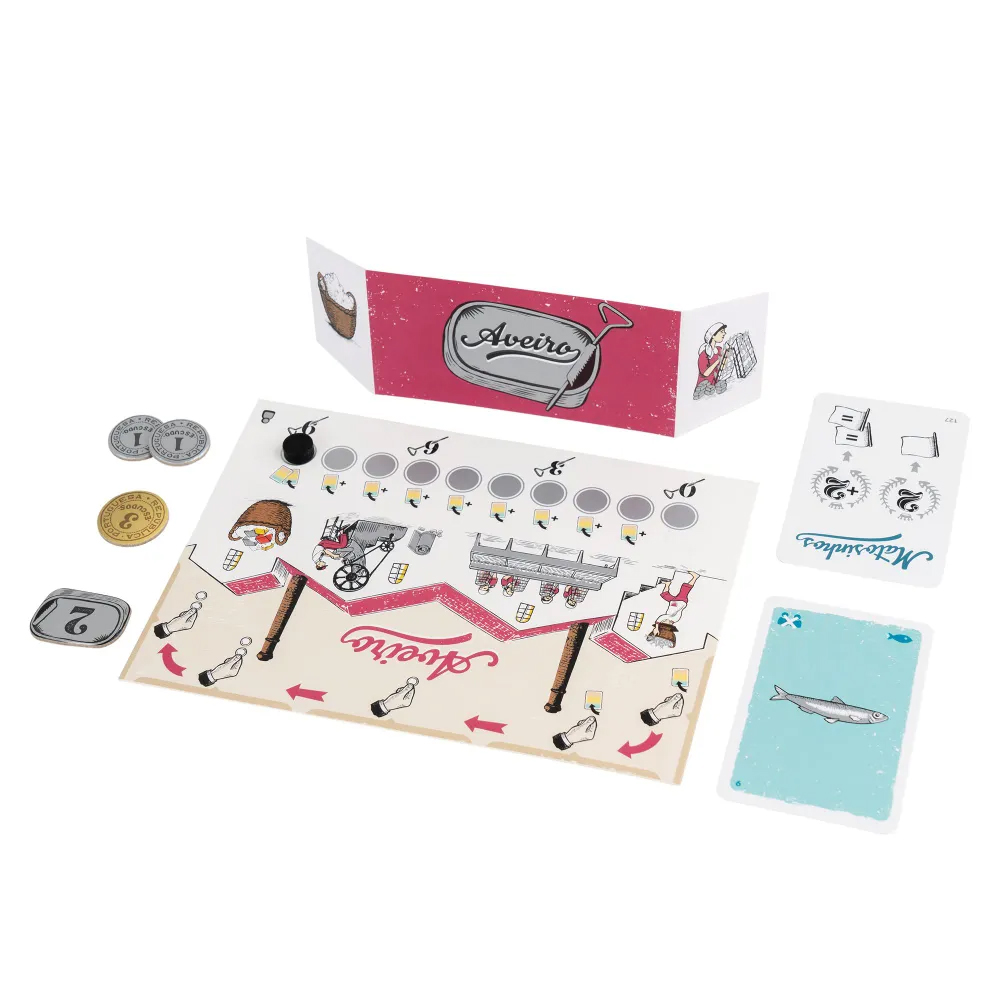
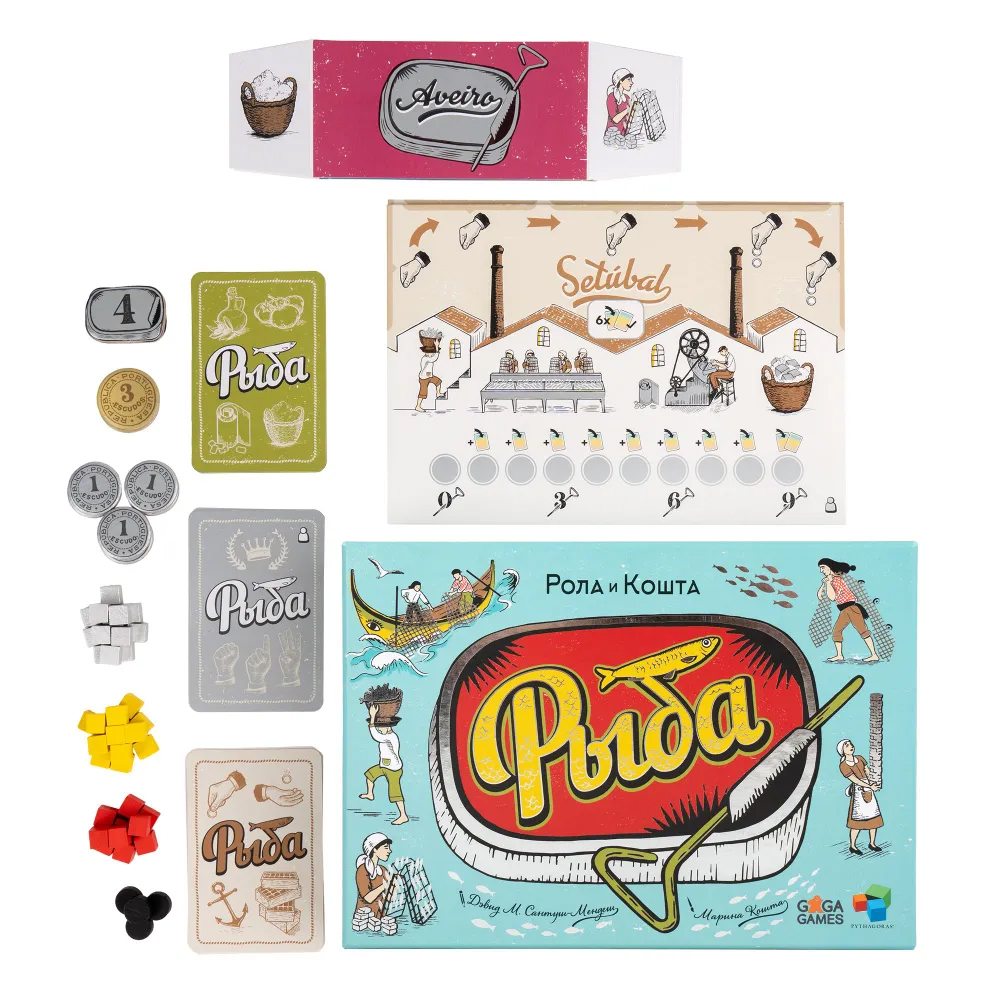
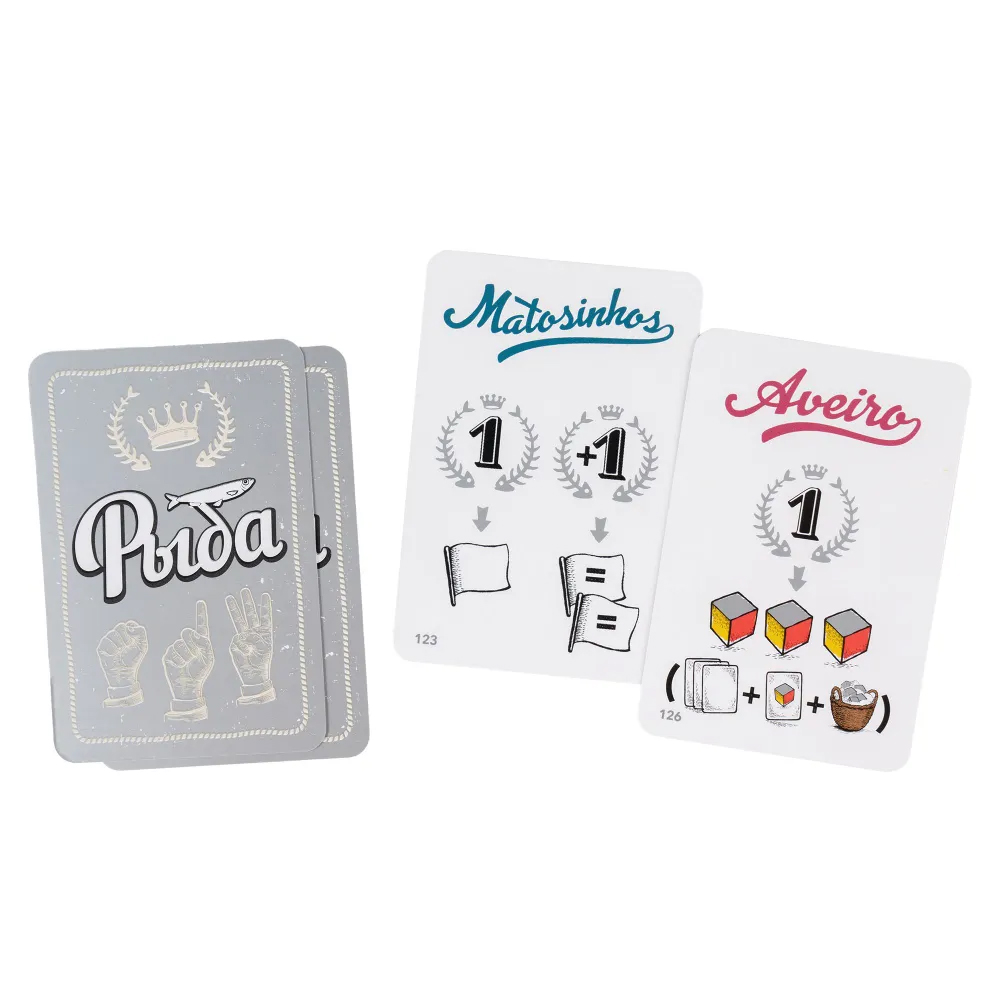
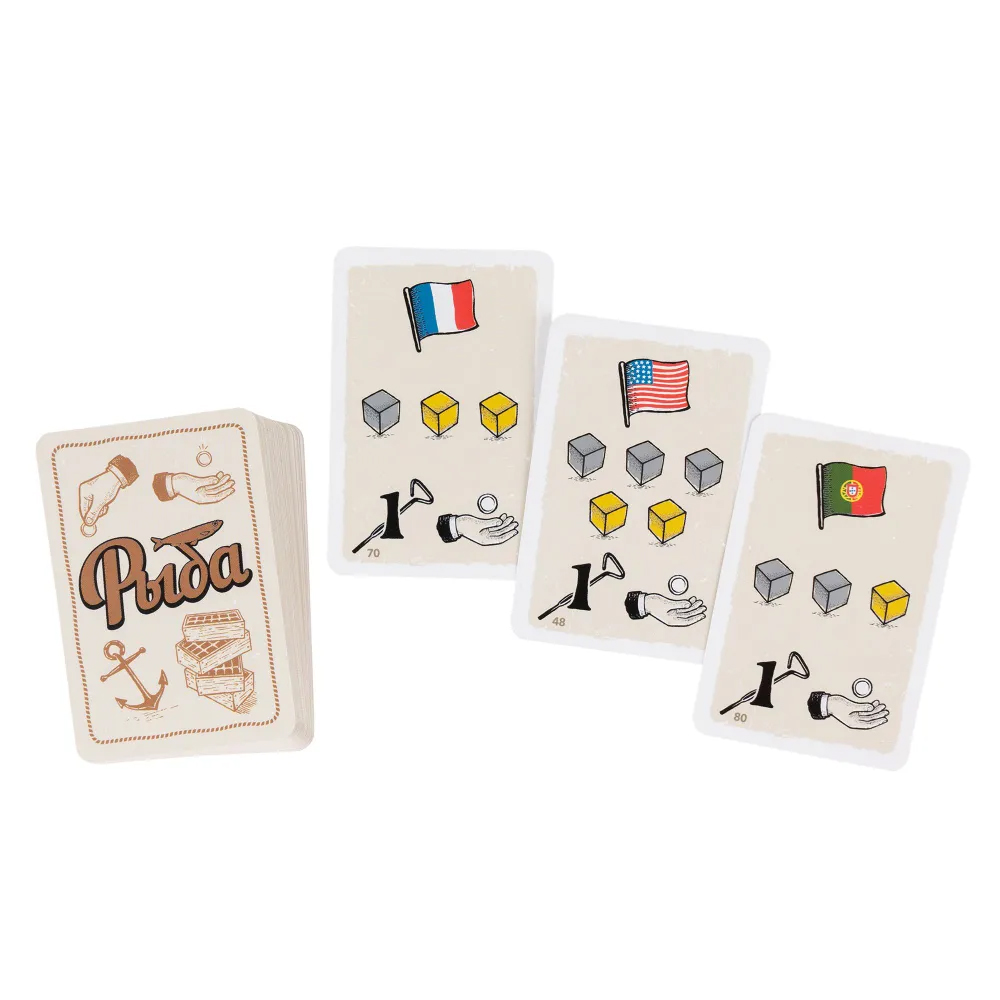
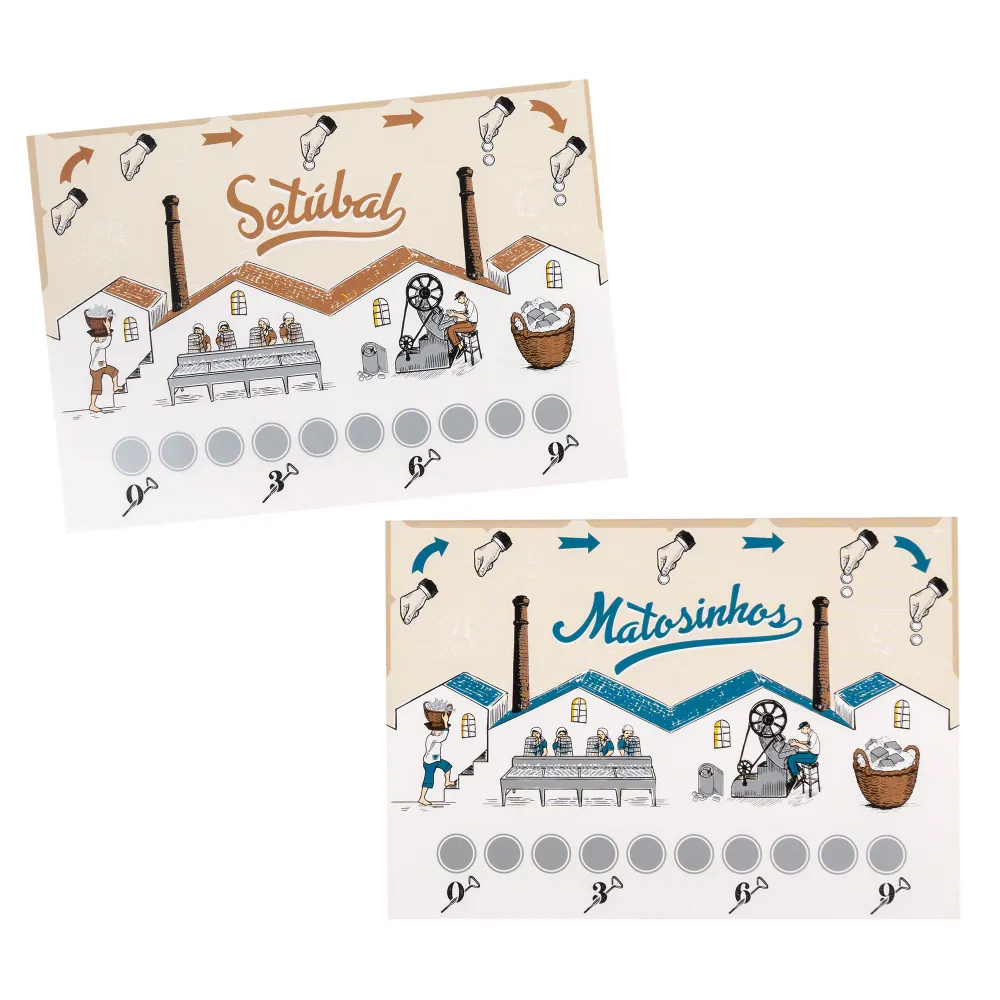
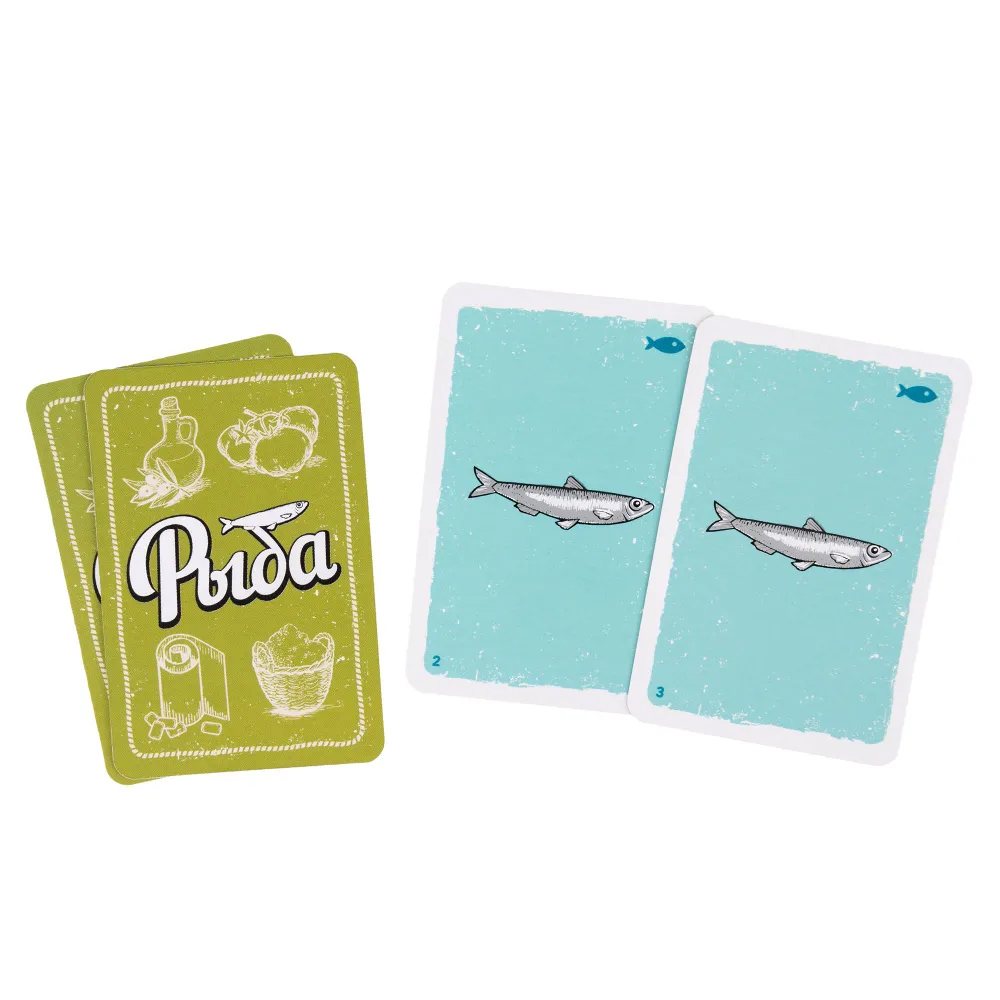
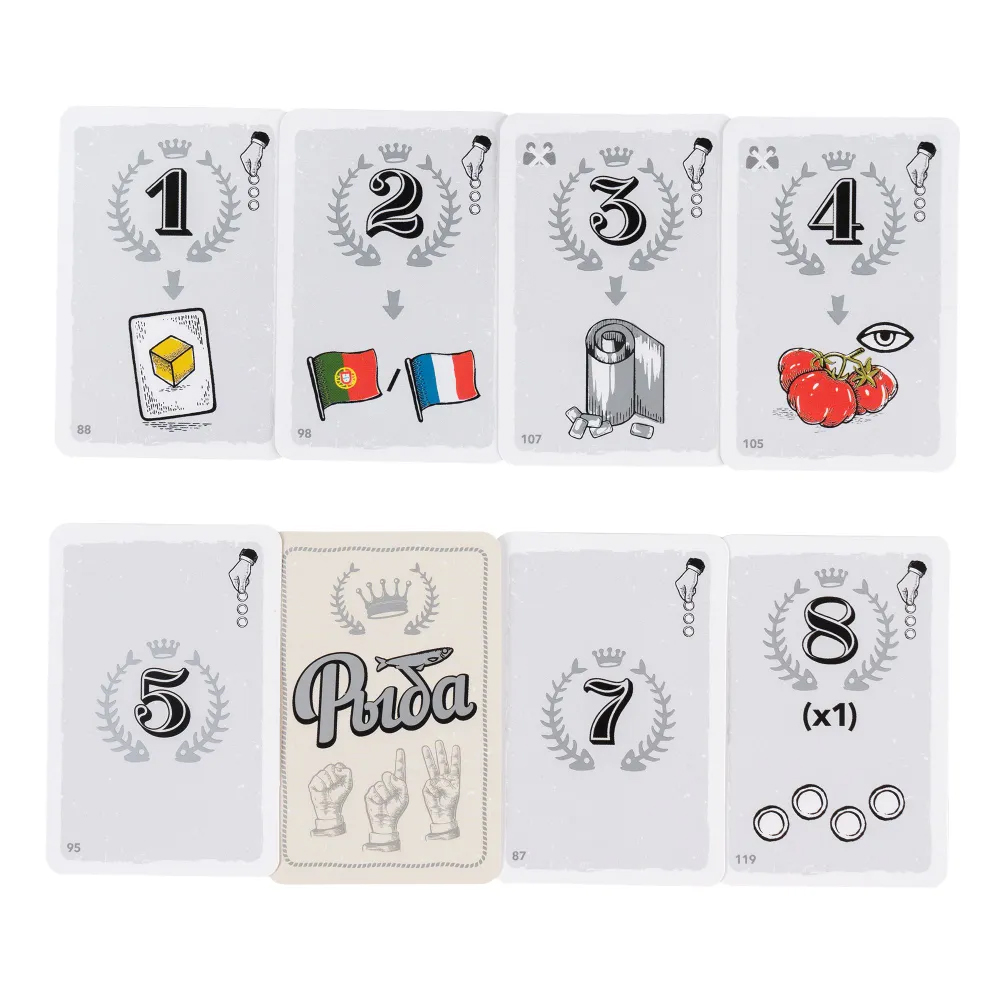
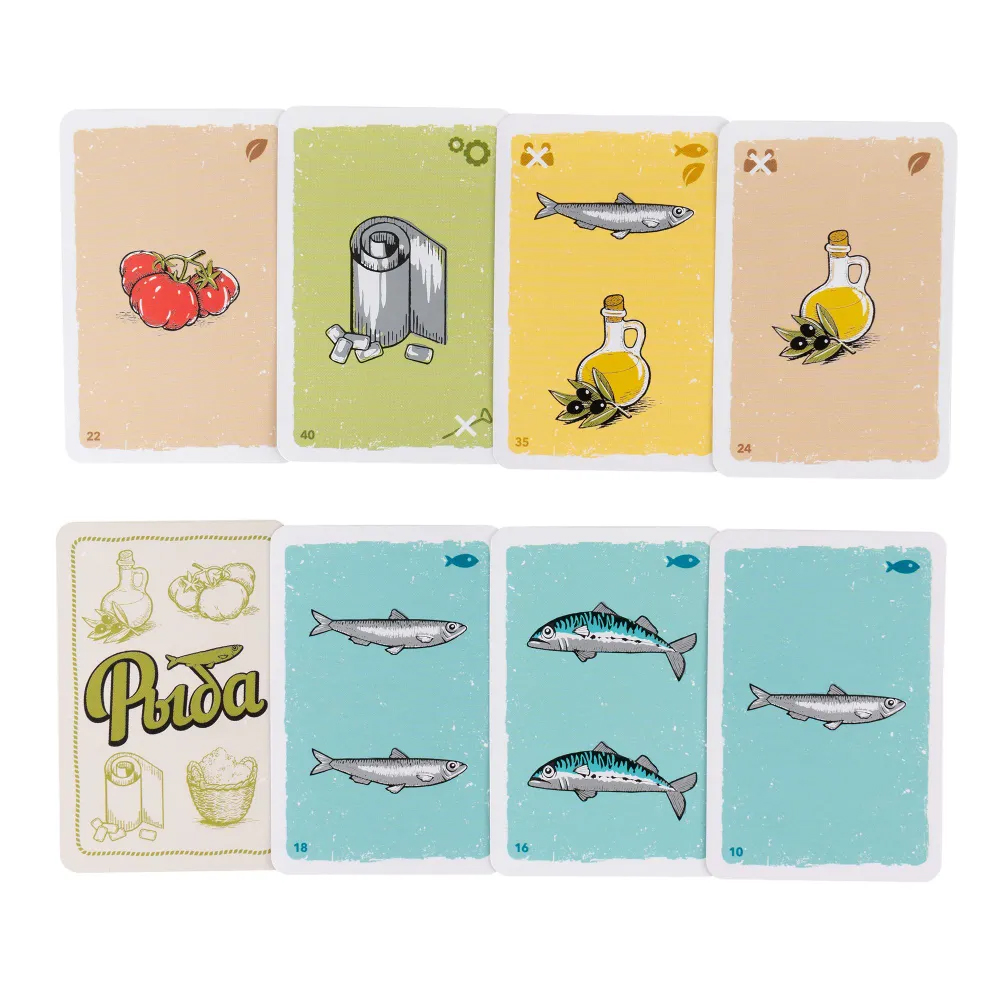
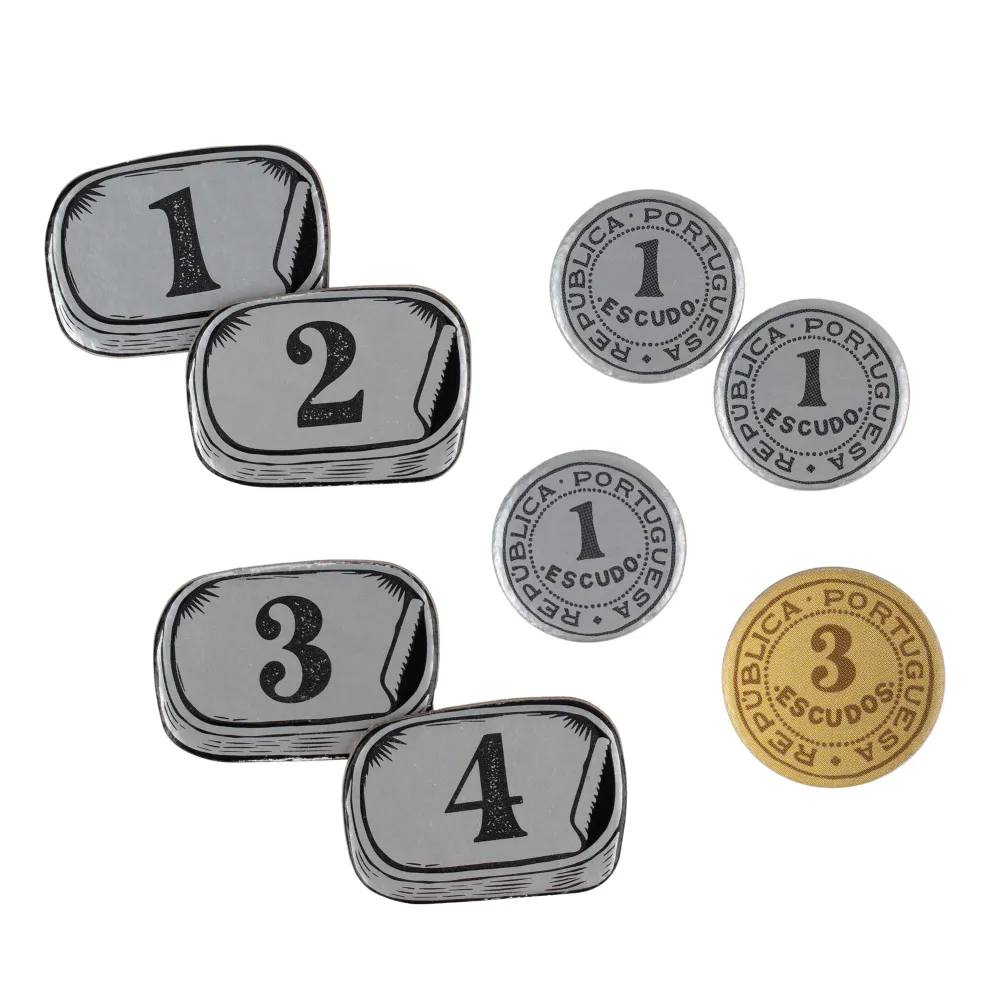
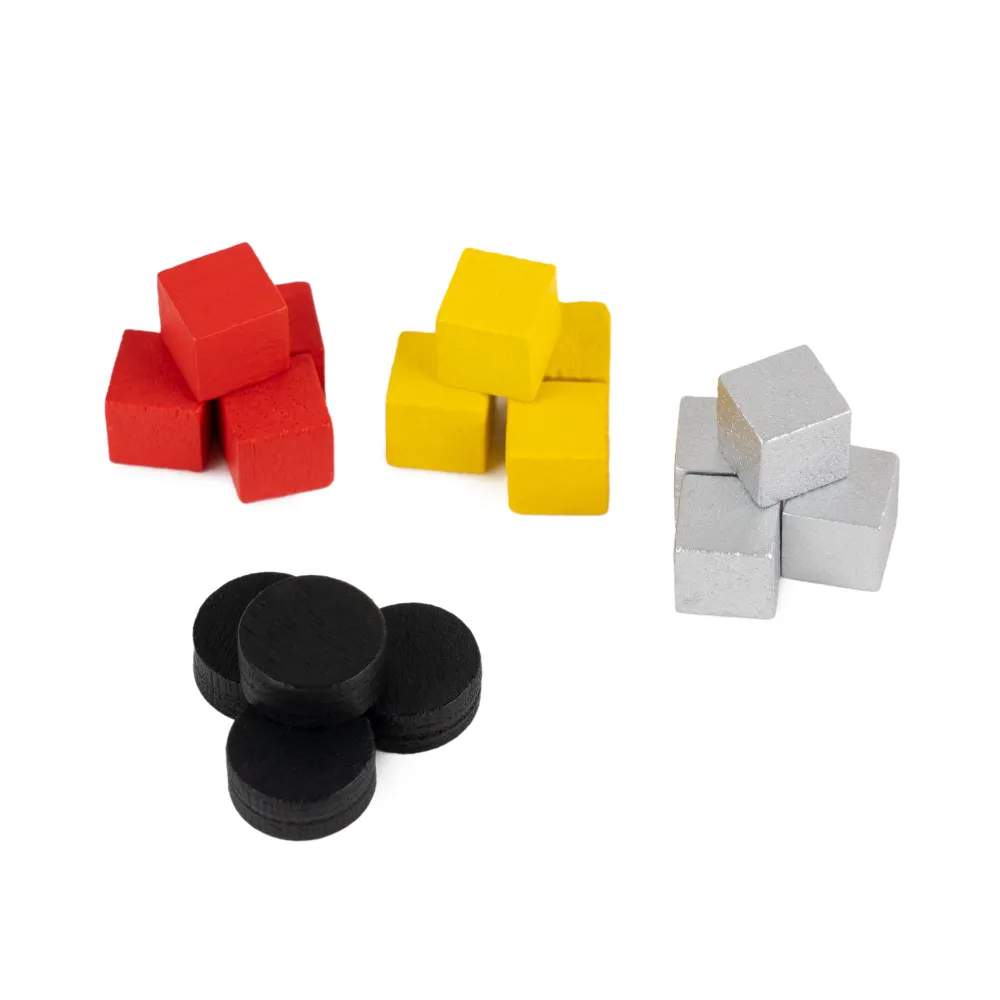
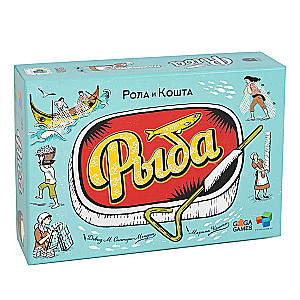

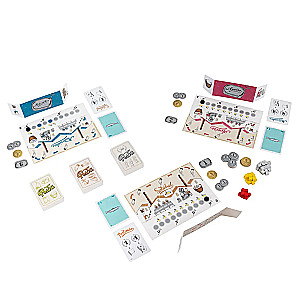
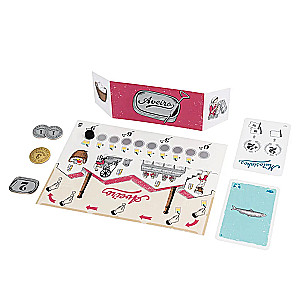
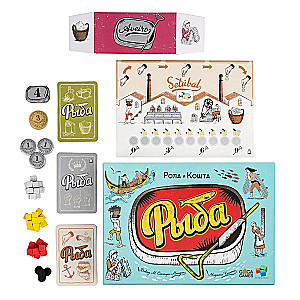
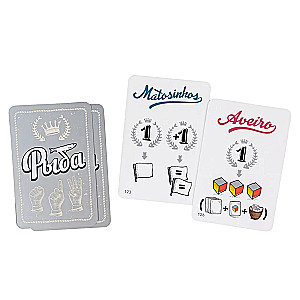
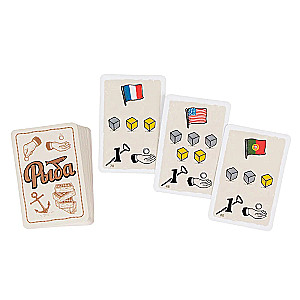
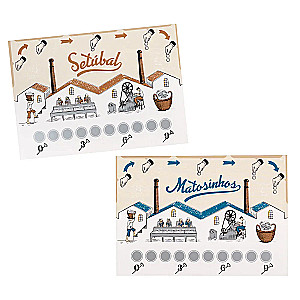
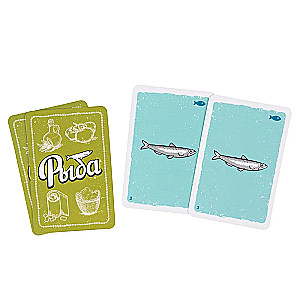
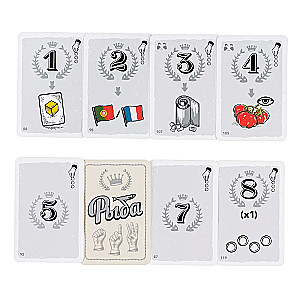
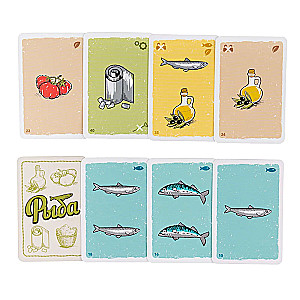
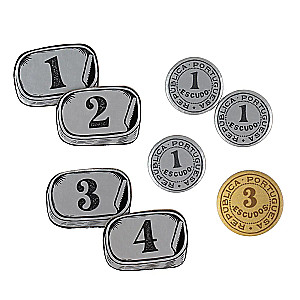
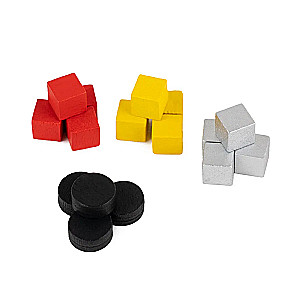
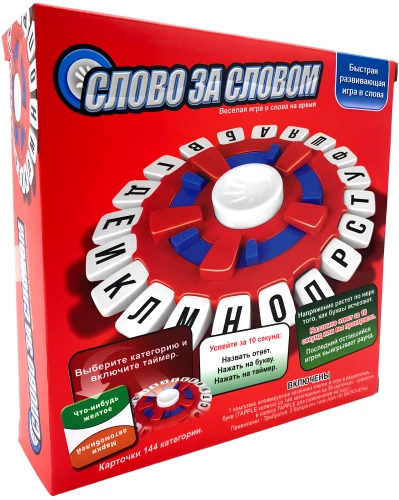

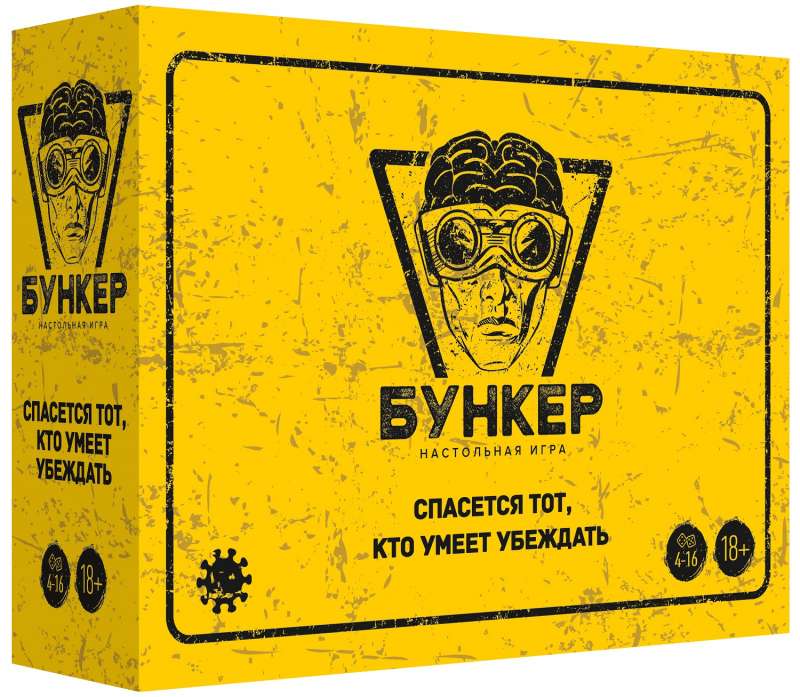
-medium.webp)


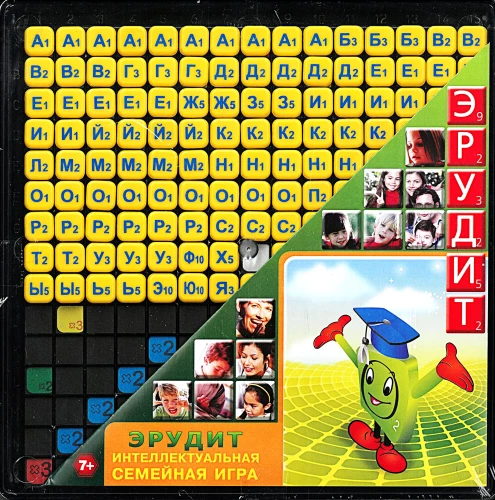

-medium.webp)
